The Cerebra Project Psychology team has been profiling the behaviour phenotype of SATB2-associated syndrome for the past 2 ½ years.
Cerebra has been conducting research exploring behaviours and characteristics of children and adults with SAS.
Click the link below to download an overview of the research which they have carried out so far.
Future research: Behaviours that challenge in SATB2-associated syndrome
Behaviours that challenge have been identified as one of the leading priorities for research by families of individuals with SATB2-associated syndrome (SAS).
While it has been reported that individuals with SAS often display a happy disposition or a jovial personality, this is often offset by a presence of behaviours that challenge, such as self-injurious behaviour and aggression.
Research into other rare syndromes has indicated that specific syndrome characteristics (e.g. autism symptomology, health-related difficulties, sleep disturbance and mental health difficulties) can increase the likelihood of behaviours that challenge. However, behavioural phenotypes, and therefore the pathways to behaviours that challenge, vary across different syndrome groups. Currently, almost nothing is known about the factors that contribute to these behaviours specifically in SAS.
This three-stage PhD is funded by the Baily Thomas Foundation and will involve in-depth study of behaviours that challenge in SAS. The overarching aim is to understand the contribution of health-related difficulties, autism symptomology, sleep disturbance and mental health difficulties to the development and maintenance of behaviours that challenge in SAS.
Through the three-stages the project will 1) identify syndrome characteristics that may be associated with behaviours that challenge in SAS, 2) conduct detailed interviews with families about what happens before and after behaviours to understand what may be causing them, and 3) conduct assessments of behaviour with people with SAS to further understand syndrome characteristics and how they are related to behaviours.
By improving our understanding of behaviours that challenge in SAS, this research may lead to syndrome specific guidelines to help families and clinicians reduce these behaviours of concern, leading to improved outcomes and support of individuals and families.
The Baily Thomas PhD studentship has been awarded to Lauren Shelley and will be hosted at Aston University, supervised by Dr Jane Waite. The PhD will be held within the newly formed Cerebra Network for Neurodevelopmental Disorders across Aston University, University of Birmingham, Warwick University and University of Surrey. Collaborators include Dr Caroline Richards, Dr Stacey Bissell, Dr Hayley Crawford and Dr Joanna Moss.
The study is due to commence in October 2020.
For advice on Pain/Sleep/Anxiety please see the guides on the Cerebra website.
They also provide advice on:
- Education
- Legal, Social and Financial
- Physical wellbeing
- Emotional and Mental health
Meet the Cerebra Network for Neurodevelopmental Disorders Team
Follow a manual added link
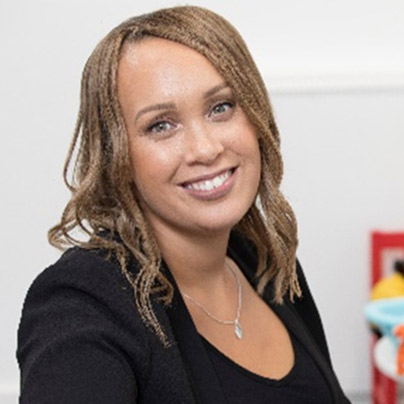
Dr. Caroline Richards
Follow a manual added link
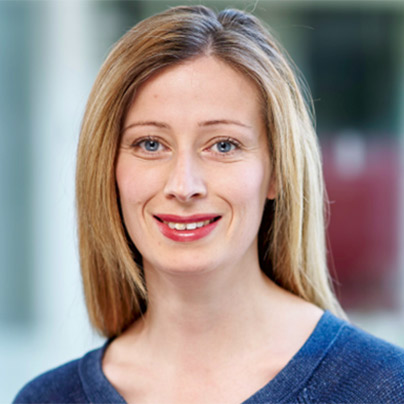
Dr. Jane Waite
Follow a manual added link

Dr. Hayley Crawford
Follow a manual added link
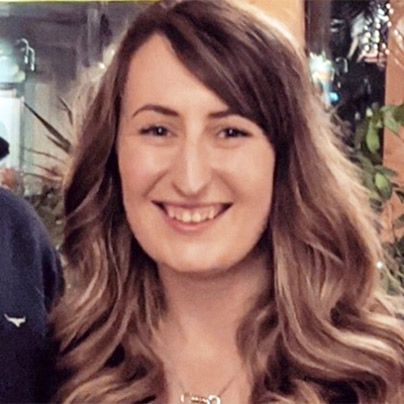
Lauren Shelley
Follow a manual added link
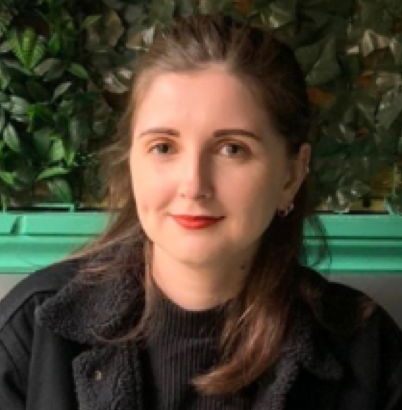
Dr Stacey Bissell
About
The SATB2 Gene Trust UK was established to enhance the lives of those affected by SATB2-associated syndrome by providing emotional and educational support, and by raising awareness and supporting research.
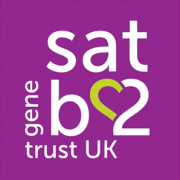

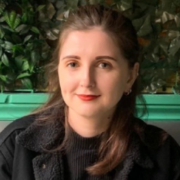
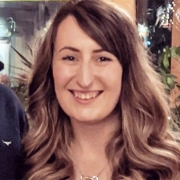

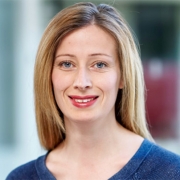
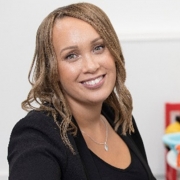
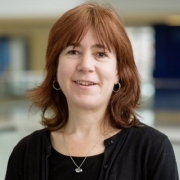 Dr. Jennifer Fish is an Assistant Professor at the University of Massachusetts Lowell (UML), where she teaches Developmental Biology and Comparative Vertebrate Embryology. Prior to arriving at UML, she trained at King’s College London and the University of California San Francisco. Dr. Fish has been researching the roles of SATB2 in development since 2008 using animal models of disease.
Dr. Jennifer Fish is an Assistant Professor at the University of Massachusetts Lowell (UML), where she teaches Developmental Biology and Comparative Vertebrate Embryology. Prior to arriving at UML, she trained at King’s College London and the University of California San Francisco. Dr. Fish has been researching the roles of SATB2 in development since 2008 using animal models of disease.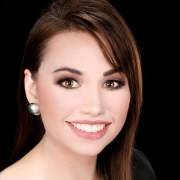 Ashlen Thomason, Ph.D., CCC-SLP, is a member of the outpatient speech pathology team at Arkansas Children’s Hospital. She is a graduate of the Arkansas Consortium for the Ph.D. in Communication Sciences and Disorders with a major research emphasis in stuttering and minor in cleft palate.
Ashlen Thomason, Ph.D., CCC-SLP, is a member of the outpatient speech pathology team at Arkansas Children’s Hospital. She is a graduate of the Arkansas Consortium for the Ph.D. in Communication Sciences and Disorders with a major research emphasis in stuttering and minor in cleft palate.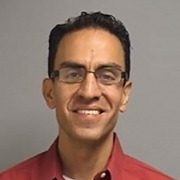 Dr Yuri Zarate is a Clinical Geneticist and an Associate Professor at the University of Arkansas for Medical Sciences and Arkansas Children’s Hospital. In 2014, Dr Zarate started a research project that led to a report with the first cohort of patients with SATB2-associated syndrome (SAS). From there, he established a strong-long lasting relationship with the support group for this rare condition, created the initial dedicated
Dr Yuri Zarate is a Clinical Geneticist and an Associate Professor at the University of Arkansas for Medical Sciences and Arkansas Children’s Hospital. In 2014, Dr Zarate started a research project that led to a report with the first cohort of patients with SATB2-associated syndrome (SAS). From there, he established a strong-long lasting relationship with the support group for this rare condition, created the initial dedicated 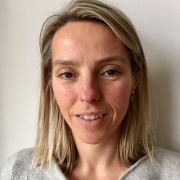 Drs. Barber Tinselboer is a physician for people with Intellectual Disabilities (ID). In the Netherlands, this is a medical specialty, created to provide better medical care to people with ID. Her work is comprised mostly of treating the comorbid conditions in people with ID like epilepsy, behavioural issues, psychiatric disorders and additional physical problems. She works at ‘s Heeren Loo in Apeldoorn, an organization that provides care, services and treatment for people with ID. She also has a son with SATB2-associated syndrome.
Drs. Barber Tinselboer is a physician for people with Intellectual Disabilities (ID). In the Netherlands, this is a medical specialty, created to provide better medical care to people with ID. Her work is comprised mostly of treating the comorbid conditions in people with ID like epilepsy, behavioural issues, psychiatric disorders and additional physical problems. She works at ‘s Heeren Loo in Apeldoorn, an organization that provides care, services and treatment for people with ID. She also has a son with SATB2-associated syndrome.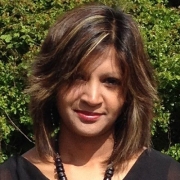 Dr Meena Balasubramanian completed her Paediatric training before undertaking specialist training in Clinical Genetics. Her MD is on atypical presentation of Osteogenesis Imperfecta (OI) obtained in 2012. She has been a Consultant in Clinical Genetics with a specialist bone genetics interest at Sheffield Children’s Hospital since 2012, and provides genetics input to the national OI service. She has led several projects focused on genetics of rare bone disorders and currently pursuing research projects focussed on identifying novel genomic approaches to rare bone disorders and exploring newer targets for therapy for these conditions.
Dr Meena Balasubramanian completed her Paediatric training before undertaking specialist training in Clinical Genetics. Her MD is on atypical presentation of Osteogenesis Imperfecta (OI) obtained in 2012. She has been a Consultant in Clinical Genetics with a specialist bone genetics interest at Sheffield Children’s Hospital since 2012, and provides genetics input to the national OI service. She has led several projects focused on genetics of rare bone disorders and currently pursuing research projects focussed on identifying novel genomic approaches to rare bone disorders and exploring newer targets for therapy for these conditions.